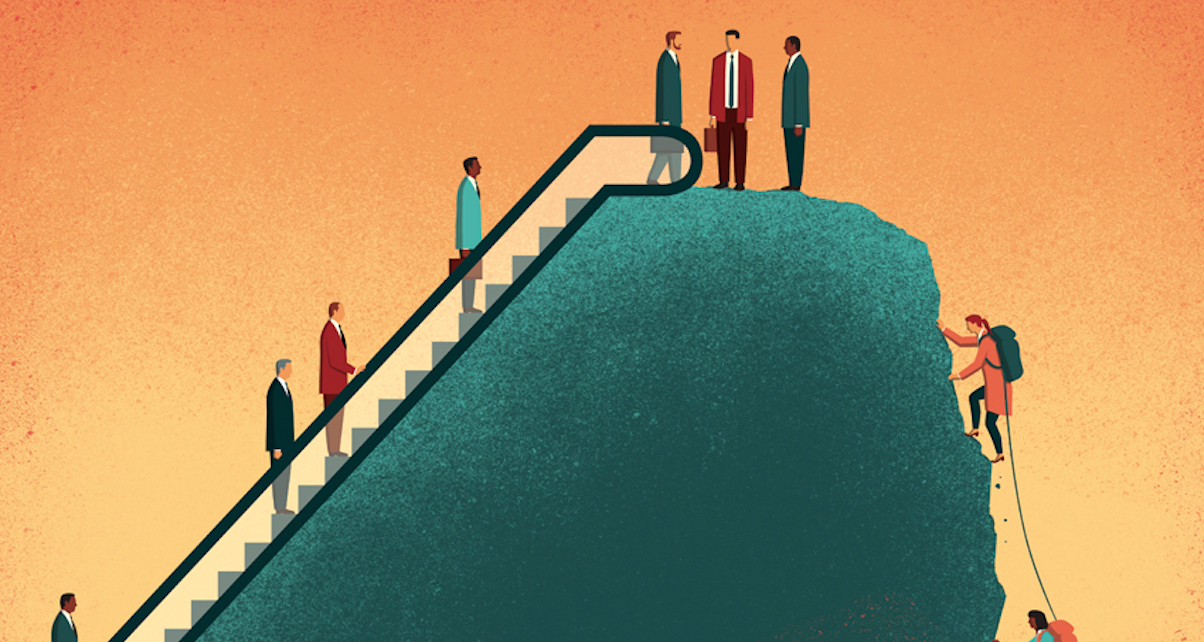A couple of weeks ago, DJ/producer Butch posted on his Facebook page lambasting a post on a music blog entitled: “10 Female DJs who are Rocking the Techno Scene”. His point was that there are many talented female DJs out there and that musical ability has nothing to do with gender. He demanded that people put an end to publishing these kinds of lists.
Perhaps predictably, his post garnered the attention of many, and polarised opinion. However, perhaps things aren’t quite as black and white as they seem…
Are we missing the point?

In an ideal world, what Butch says is correct. To quote him again: “What’s the next thing? A list of hot black DJs, ugly DJs, Asian DJs, Latinex, all white, female hot and female not so hot list, best dressed? What have these categories got to do with musical ability? Does it really matter which shoes I wear?” It is difficult to argue with his logic here. He goes on to claim that this kind of behaviour just makes it even more difficult for women to break into what he calls a “male-dominated market”.
On the other hand, if we solely promote “good DJs” and do away with the “female” tag, how can we be so sure that the best artists will organically rise to the top? While it’s easy to say that you don’t care about the male-female DJ ratio and that you are only concerned about the quality of the artists, to assume that the best will rise to the top anyway is, frankly, naive. There are more men in the business than women, which puts the latter at a disadvantage from the off. Simple probability stacks the odds against women, and that’s before you chuck potential discrimination into the mix.
The fact that – as The Black Madonna points out – line-ups are 90% made up of male DJs is clearly a problem, but how do we go about fixing it?
It seems that nowadays we have an obsession with the idea that “we need to get more girls into ‘x'”. But why, how, and at what cost? Do we start to try to balance things out artificially? Maybe this just further complicates and propagates the issue at hand.
Maybe positive discrimination is not the way forward. Giving women gigs over men and vice versa “because they are (wo)men” is quite possibly harmful to everyone. Why? Because if the DJs brought in to do the “balancing” aren’t up to scratch, they will rightly be criticised. The issue lies here: if a guy is booked over another guy for his social media following and then fails, people say “oh well, bad choice” and that one guy who failed is taken less seriously. If we flip this on its head and a girl flops, at the most flattering, people would say “she was only picked because she’s a girl”. Whereas in the previous example just that one guy is tossed aside, in this case, all female DJs take a hit.
Truth is that if someone is given a task in place of you and they are quite clearly not up to scratch and they fail, who wouldn’t find cause for complaint? This happens in every walk of life and always has. What people need to wake up to is the sad fact that the world doesn’t function as a meritocracy. How can it when so much prejudice exists?
So, what can we do to address the imbalance?

The problem doesn’t exist because clickbaity DJ lists using the word “female” as the bait are published online. Granted, in the main picture of the post that caught Butch’s attention the fact that the women showcased look like models might well discourage those who don’t. However, that is part of a broader societal issue that places too much pressure on women to “look perfect” all the time. The fact of the matter is that there’s a dearth of female DJ role models out there. Maybe this is more the issue.
Recently Phil Morse, our founder, interviewed the amazing London-born, now New York-based DJ Misbehaviour, and put the following questions to her: “Why aren’t there more females in this game? What can be done to encourage them? Why is it a male-dominated game?” She made some interesting points:
“Well, I think it’s a role model thing. When I first started, there was probably just five or six prominent female DJs in London. I think people identify with someone who’s like them. There weren’t so many clubs where you go and see another woman DJing and go ‘oh, I’ll do that’. If you don’t see a lot of people like you doing something, then you have to forge your own path. It just takes a bit longer.
“The more people see women DJing, the better. It really helps when people see that because there’s a myth about women and technology, whereas [actually] there are a lot of women out there who are into technology. Doing things like what you’re doing, interviewing and showcasing women on your site, draws other women to say: ‘Well, if she can learn to do this, I can learn to do this.'”
So, with this in mind maybe actually these lists are, after all, doing more good than harm. If we assume that the majority of these articles are written without malice, then the task becomes simply to try to ensure that rather than primarily serving as “eye candy” for a male audience, these articles are designed primarily to encourage other women.
What did Butch’s followers think?
The authors of the article, DanceTrippin TV, sent the following riposte to Butch:
“Thanks for those thoughts. You have a point on what you are saying and it’s interesting to read about this way of looking at it. The music industry is still an unequal business in terms of gender diversity and might always stay like this because fewer females have the desire to become a DJ. For now, we feel that putting the spotlight on female DJs will help to make the industry more equal, but what do we know?”
Their reply is in line with Misbehaviour’s (and our) stance on the matter. This works irrespective of the sphere of interest, the gender, age, colour, whatever… people need to see other people like themselves doing things to be inspired by them. This is what gives people the courage and dedication to put in the hours of practice, sacrificing an awful lot along the way in order to reach their goals.
A recent and more mainstream example of this is women’s football. It is no coincidence that with more games shown on TV and more articles written about it in the media, more girls have started to take up the sport. Some of the players are now global stars and in turn, have become heroes to many. One of the several great comments left by Facebook users on Butch’s post was by a respondent called Lieke Voermans:
“Just an example, when the Dutch soccer team started doing well (they actually managed to win the European Championships), there was an immense spike in girls signing up to play soccer. The same goes for our national women’s hockey team, currently, female players outnumber the male players.
“Seeing other people like you being successful makes it possible for you to identify with, and also makes it something you want to try too. Representation matters and added visibility via articles is welcome. It may not always be done in the right way but at least it feels like there are people out there like them too. I hope one day none of this matters, but since a lack of equality is missing at the moment, we need this.”
We agree with those points, and the overwhelming majority of female commenters on Butch’s post echoed Lieke and Misbehaviour’s sentiments.
Finally…
To speed things up, a change in attitude is required for both men and women. There are men and women who are guilty of doing their respective genders a disservice by using their “attractiveness” to manipulate others to their own end. This makes it an even more difficult task for the talented people who aren’t prepared to do this and even more difficult for those who might not be what society would conventionally call “attractive”. If we don’t stop this behaviour then we are stifling progress.
Ultimately, it’s important to remember that we’re all on the same side – we all want the best for each other and the DJ industry. Gender equality cannot be forced but we can do a lot to help. We need to make sure we go about it in the right way though, otherwise, we could end up doing more damage than good. The more exposure given to DJs who just so happen to be female, the better. We all need role models and idols to inspire us to realise our dreams.
So for now, at least, we will have to grin and bear seeing the phrase “female DJ” bandied around. We will only be able to do away with the “female” tag when women are more evenly represented in the DJ industry.
Ultimately, maybe we need to get together and stamp out the institutionalised racism, sexism and classism that slams the door shut in front of a lot of people before they even have a chance to think about careers as DJs.
What do you think about this? Have you ever personally experienced discrimination? Let us know in the comments below…








